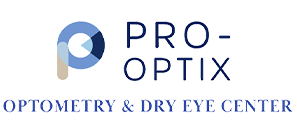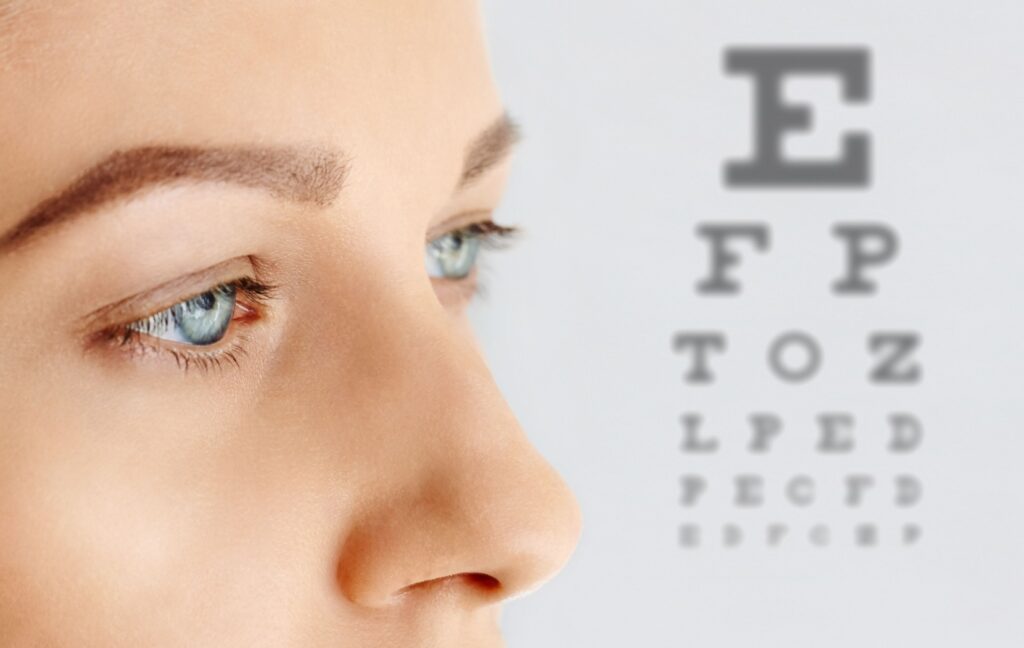If you or your child has myopia (nearsightedness), you might wonder whether this vision condition will naturally improve over time. Many health conditions change as we age, so shouldn’t eyesight follow the same pattern?
Myopia typically does not improve with age. Instead, it usually stabilizes during adulthood or may continue progressing without proper management. Understanding how myopia behaves throughout different life stages can help you make informed decisions about your vision care.
Understanding Myopia: The Basics
Myopia is a common refractive error that affects how your eyes focus light. When you have myopia, distant objects appear blurry while close-up vision remains clear. This happens because your eye grows too long or your cornea curves too steeply, causing light to focus in front of the retina instead of directly on it.
Factors Contributing To Myopia Development
Several factors contribute to the development and progression of myopia.
- Genetics: Genetics plays a significant role. If one or both parents have myopia, their children face a higher risk of developing the condition.
- Lifestyle Factors: Lifestyle factors also play a role in the development of myopia. Extended periods of close-up work combined with limited sun exposure contribute to myopia development.
Most myopia cases are diagnosed through comprehensive eye exams and managed with corrective lenses, specialty contact lenses, or targeted myopia control treatments.
How Myopia Changes Throughout Life
Myopia typically follows predictable patterns as we age, though it rarely improves on its own. Understanding these patterns can help set realistic expectations for your vision care journey.
Childhood & Teenage Years
During these formative years, myopia often progresses rapidly. Children’s eyes grow quickly, and this growth frequently worsens nearsightedness. Many parents notice their child’s prescription changing every six months to a year during peak growth periods.
Early Adulthood (20s to Early 30s)
Good news arrives during early adulthood when myopia progression usually slows significantly or stabilizes completely. This stabilization occurs because major eye growth phases have ended.
Later Adulthood
While myopia itself doesn’t improve, other vision changes emerge. Presbyopia (age-related difficulty seeing close objects) typically develops around age 40. However, presbyopia doesn’t reverse myopia; instead, it creates different vision challenges that may require multifocal lenses or other solutions.
Some adults experience prescription changes, but these usually relate to other age-related factors rather than myopia improvement. This is why maintaining regular eye exams remains crucial throughout your lifetime.
Lifestyle Changes That Make a Difference
Modern life presents unique challenges for eye health. Increased screen time, extensive close-up work, and reduced outdoor activities all contribute to myopia progression, particularly in children and teenagers.
Fortunately, simple lifestyle adjustments can help slow myopia’s progression:
- Practice the 20-20-20 rule: Every 20 minutes, focus on something 20 feet away for at least 20 seconds. This gives your eyes regular breaks from close-up work.
- Prioritize outdoor time: Spending at least two hours daily outdoors can slow myopia progression in children. Natural light and distance vision activities provide valuable benefits.
- Take frequent breaks: Encourage regular pauses during homework, reading, or device use to reduce eye strain.
- Ensure proper lighting: Good lighting during reading or screen use helps minimize additional eye strain.
These straightforward daily habits can create measurable improvements in preserving vision over time.
Effective Myopia Management Options
Although myopia may not improve naturally with age, management strategies can help slow its progression and protect long-term eye health.
Atropine Eye Drops
Low-dose atropine eye drops are commonly prescribed for children to help slow eyeball elongation. While these drops don’t correct blurry vision directly, they work to control myopia worsening over time.
MiSight 1 Day Contact Lenses
MiSight contact lenses are specifically designed for children with myopia. These soft, daily disposable lenses help focus light correctly on the retina, potentially slowing eye growth and myopia progression while providing clear vision throughout the day.
Why Early Intervention Matters
Starting myopia management early provides significant long-term advantages. Without proper management, myopia can progress to high myopia, which increases the risk of serious eye health complications later in life.

High myopia raises the risk of:
- Retinal detachment
- Myopic macular degeneration
- Glaucoma
- Cataracts
By addressing myopia proactively, you help protect against these risks and promote healthier vision throughout adulthood and beyond.
Vision Changes in Older Adults
Some adults experience vision changes later in life, but these typically relate to other age-related eye conditions rather than myopia itself.
Two common vision changes include:
- Presbyopia affects most people around age 40, making it harder to see close-up objects clearly. This condition requires different treatment approaches than myopia.
- Cataracts can cause temporary “second sight,” where close-up vision seems to improve. However, this isn’t a true myopia reversal and usually requires cataract surgery for proper treatment.
Regular eye exams remain essential for monitoring these changes and maintaining optimal eye health throughout your lifetime.
Partner with ProOptix Eye Care for Better Vision
While myopia doesn’t improve naturally with age, proactive care and modern treatments can effectively slow its progression and protect your long-term eye health. Our team stays current with the latest myopia control strategies and technologies to provide you with the most effective treatment options available. Book your appointment with ProOptix Eye Care today and take the first important step toward preserving and protecting your vision.





